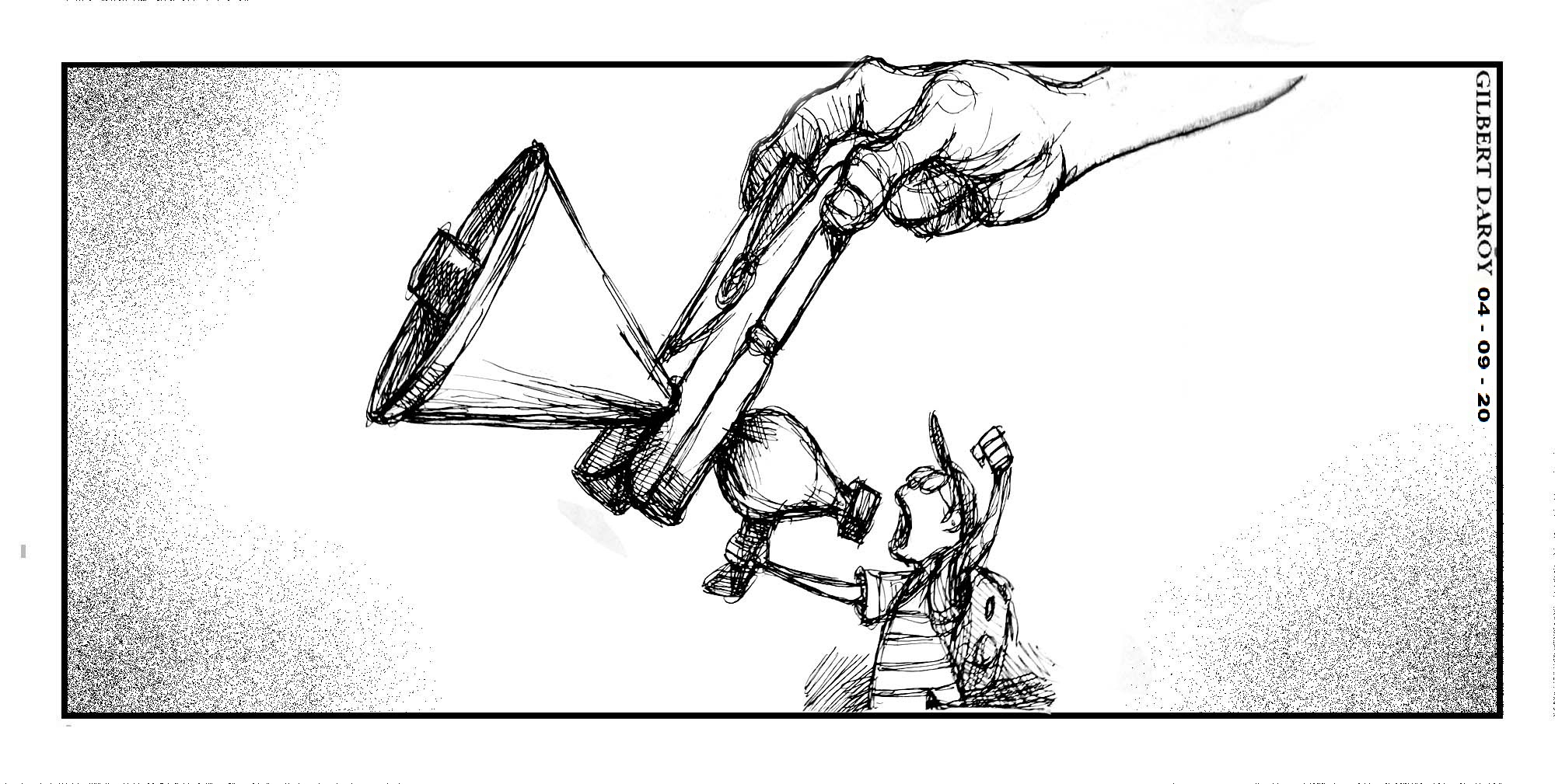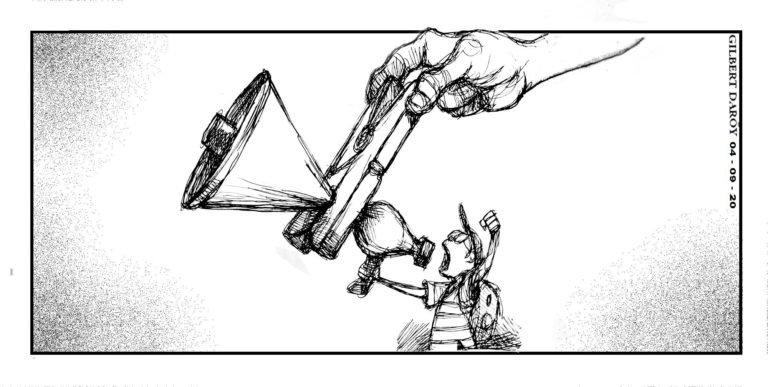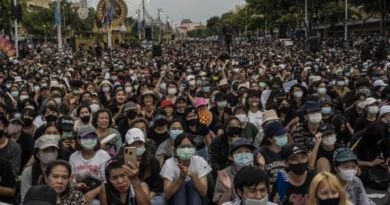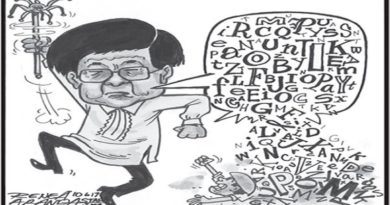EDITORIAL-CARTOONS: Small tyrants
THE EDITOR
 Small tyrants
Small tyrants
These are dangerous times, and not only health-wise. As Filipinos take special measures to safeguard themselves and their loved ones from the deadly virus, to treat others with respect and compassion, and to express gratitude in word and deed to the heroes, both the lowly and the prominent, who keep everything together and functioning, let not their attention be thoroughly diverted from the rapidly shrinking democratic space.
READ MORE: https://opinion.inquirer.net/128766/small-tyrants
.
Today, Araw ng Kagitingan, we celebrate the Filipino wartime soldiers who spoke truth to power by their deeds. Their uncommon valor acquires resonance in these dangerous times when speaking truth to power is an act at once bracing and terrifying.
For more news about the novel coronavirus click here.
What you need to know about Coronavirus.
For more information on COVID-19, call the DOH Hotline: (02) 86517800 local 1149/1150.
 Ads by: Memento Maxima Digital Marketing
Ads by: Memento Maxima Digital Marketing
@ [email protected]
– SPACE RESERVE FOR YOUR ADVERTISEMENT

EDITORIAL – New heroes
We honor the heroes of Bataan and World War II today as the country wages a new war that is creating a new breed of heroes. In the last stand of the defenders of Bataan, selflessness and service to the nation marked the actions of the heroes who are being honored today, Araw ng Kagitingan or Day of Valor.
READ MORE: https://www.philstar.com/opinion/2020/04/09/2006443/editorial-new-heroes
.
The best way to honor the new heroes is by helping to ensure that this public health crisis ends as soon as possible. This requires staying at home as much as possible, wearing protective masks and observing physical distancing, and cooperating with other measures to contain the pandemic. People have lost jobs and livelihoods due to the COVID-19 threat; personal sacrifices during the quarantine can be considered as heroic deeds. There is a hero within each of us, ready to sacrifice so the nation can heal as one. / The Philippine Star
 Ads by: Memento Maxima Digital Marketing
Ads by: Memento Maxima Digital Marketing
@ [email protected]
– SPACE RESERVE FOR YOUR ADVERTISEMENT
The Straits Times says

A digital future for work is already here
The circuit breaker measures taking effect this week aim to reduce the spread of the dreaded Covid-19 disease. At the heart of these measures is the closure of schools and workplaces, once unthinkable in a country whose business is business. Essential services aside, businesses must shift their operations from their office premises to telecommuting, with their employees working from home. That telecommuting has gained ascendancy in business continuity plans highlights how contingencies can turn previously soft options into hard choices that must be made so that enterprises can continue to function. More broadly, digital technology has moved from being a platform championed largely by the authorities to being recognised by businesses as a tool for survival in critical times. It is unfortunate that the Covid-19 pandemic has forced and led to this realisation. But the hope is that this safe distancing necessity in the short term will create economic virtue in the long term. That way, some lasting good will come from today’s travails.
 Ads by: Memento Maxima Digital Marketing
Ads by: Memento Maxima Digital Marketing
@ [email protected]
– SPACE RESERVE FOR YOUR ADVERTISEMENT
At the heart of enforced digitalisation is the idea of working from home. Long before the arrival of the pandemic, observers were already noting how digitalisation facilitates work-life integration. Telecommuting makes life easier for employees in far-flung suburbs of sprawling cities who can save time travelling to and from their offices. On the corporate side, flexible arrangements lead to less hierarchical and more adaptive organisational structures, values and cultures. Working remotely softens old-school attitudes prevalent among some managers which make them think instinctively that staff are not being productive unless they are seen physically to be working. Instead, remote work encourages an honour system that makes employers trust their staff and reminds workers that such trust must be earned and kept. International teams drawn from different time zones, including employees who work from home, erase the impediment of national distance in favour of economic inclusivity. Globalisation requires just this kind of openness, and digitalisation provides a key to it.













